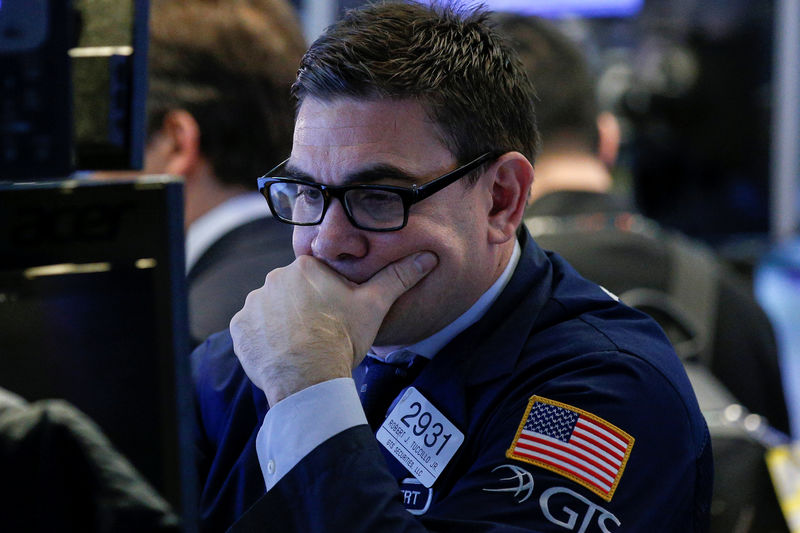This post was originally published on this site
https://i-invdn-com.akamaized.net/news/LYNXMPEE1509K_M.jpg © Reuters.
© Reuters.By Yasin Ebrahim
Investing.com – Wall Street fell on Friday, capping off its worst week since 2008 as investors weighed up global efforts to combat the Covid-19 pandemic that threatens to throw the world economy into a deep recession, with infections now topping a quarter million.
The fell 4.55%, or 913 points, the slumped 4.78% and the fell 3.79%. Both the Dow and S&P suffered their worst week since 2008.
New stimulus measures from President Trump to combat the coronavirus outbreak were overshadowed by a sharp uptick in the number of coronavirus infections across the U.S. and abroad, particularly in Europe, the epicenter of the outbreak.
President Donald Trump said the U.S. and Mexico had agreed to ban all non-essential travel across their border to contain the outbreak.
“As we did with Canada, we’re also working with Mexico to implement new rules at our ports of entry to suspend non-essential travel,” Trump said, according to media reports. The ban, however, would not hinder trade and commerce, the president added.
Infections have jumped to nearly 270,000 worldwide, with the death toll standing at about 11,266 so far, as Italy reported a record 627 deaths in a single day.
In the U.S., meanwhile, New York and New Jersey joined other states in imposing more restrictions to combat contagion, with governors of both states ordering all workers in non-essential businesses to stay at home.
With the virus increasingly sparking disruptions to daily lives and businesses across the country, Treasury Secretary Steven Mnuchin said the IRS would delay the national income tax filing day by three months to July 15.
Unprecedented action by global central banks this week, meanwhile, has done little allay investor fears of an impending recession.
The Federal Reserve on Friday announced a range of liquidity boosting measures, including an expansion of its asset purchasing program beyond just Treasurys and mortgage-backed securities to include municipal bonds to avert a potential liquidity squeeze. The New York Federal Reserve, meanwhile, said it would conduct $1 trillion in overnight repo operations each day for the rest of the month to steady short-term lending markets.
The sea of red on Wall Street was paced by declines in utilities and consumer staples, which usually serves as a defensive corner of the market, but a slump in Kroger (NYSE:), Clorox (NYSE:) and Walgreens Boots Alliance (NASDAQ:) weighed.
Energy, however, was the only sector to end in positive on the day, underpinned by late-session buying, despite a slump in oil prices.
Fusion Media or anyone involved with Fusion Media will not accept any liability for loss or damage as a result of reliance on the information including data, quotes, charts and buy/sell signals contained within this website. Please be fully informed regarding the risks and costs associated with trading the financial markets, it is one of the riskiest investment forms possible.

